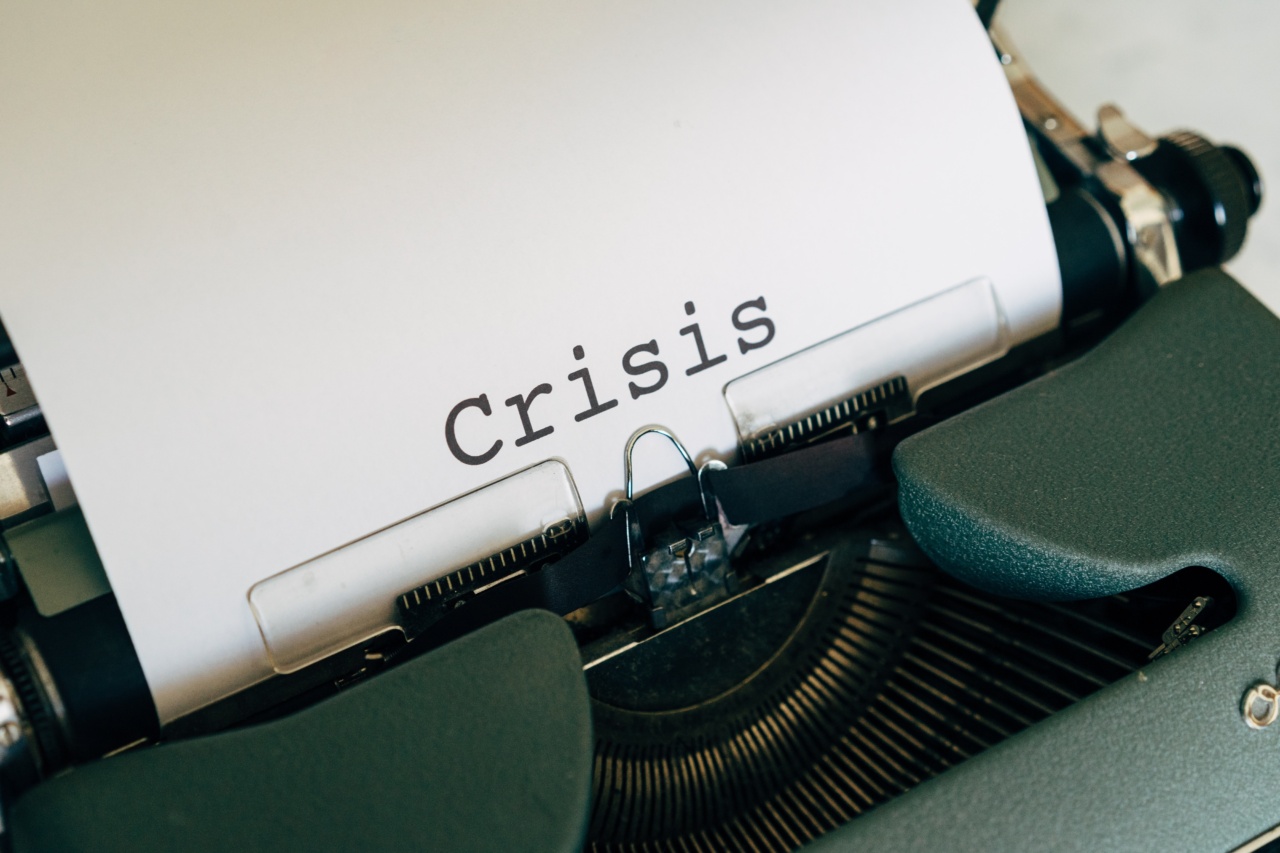The world is currently dealing with an unprecedented crisis in the form of COVID-19 pandemic. The outbreak has caused a global economic recession, devastating public health consequences, and a great sense of social disunity.
As we continue to grapple with the crisis, it is clear that the next generation must play a critical role in the management of future crises. Our world can no longer afford to have a self-centered approach to crisis management.
Understanding the current crisis and its lessons
The COVID-19 pandemic has taught us a harsh lesson about the importance of being prepared for future crises. We have witnessed firsthand the disastrous consequences of ignoring early warning signs and not taking decisive action.
We have seen how a lack of global cooperation and the hoarding of resources can harm the most vulnerable populations.
Another valuable lesson is that crisis management is not just the responsibility of governments and institutions. Individuals and communities must also be prepared and take action to mitigate the impact of crises on their lives.
COVID-19 has shown us that simple measures such as wearing masks, practicing social distancing, and washing hands can save lives.
The role of the next generation in crisis management
As the world continues to face numerous crises, including climate change, natural disasters, and social unrest, the next generation has a pivotal role to play in crisis management.
The next generation must take a more proactive approach in addressing these global crises by being more selfless in their actions and decision-making.
The next generation should work towards building communities that are more resilient in the face of crises. This includes investing in education and technology that can better equip communities to handle crises.
They should also develop innovative solutions for sustainable development that ensure the equitable distribution of resources.
Building resilience through inclusive and sustainable development
Inclusive and sustainable development is key to building resilience in the face of crises. This means ensuring that economic growth benefits everyone and does not result in the marginalization of certain groups.
It also means protecting the environment and natural resources for future generations.
The next generation can create a more sustainable and inclusive world by advocating for policies that support these goals. They can also actively participate in community-building initiatives that promote these values.
Global cooperation and intergenerational responsibility
Global cooperation is essential in crisis management. The next generation should work towards building stronger global partnerships in addressing global crises.
This includes collaborating with international organizations and creating networks with other young leaders from around the world.
The next generation must also realize that they have an intergenerational responsibility to protect the planet and create a better world for future generations.
They should actively participate in shaping policies that contribute to a more sustainable future.
Conclusion
The next generation holds a critical role in the management of future crises. They must take a more selfless approach to crisis management, actively participate in community-building initiatives, and advocate for inclusive and sustainable development.
Through global cooperation and intergenerational responsibility, the next generation can help build a more resilient world that is better equipped to handle crises.































